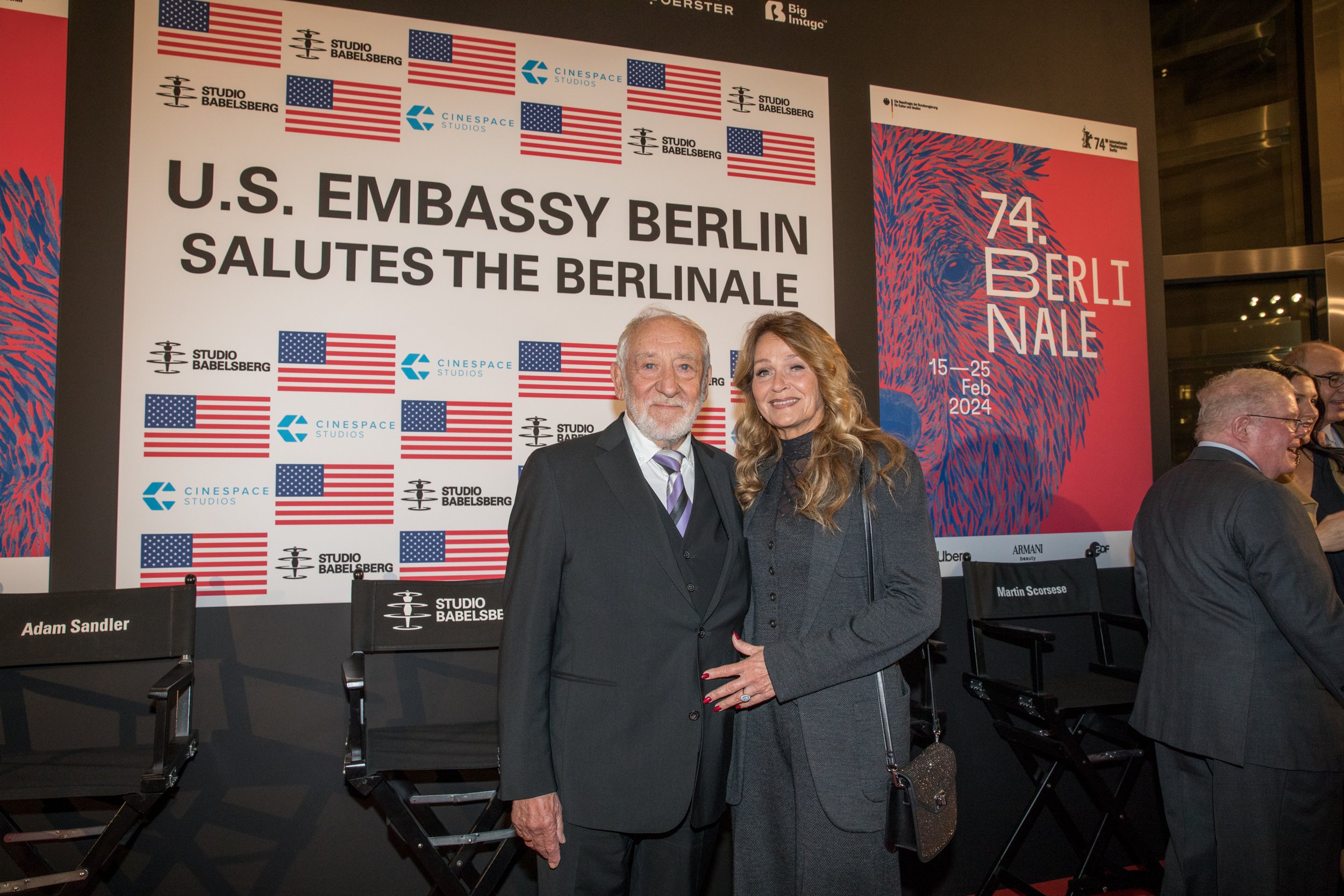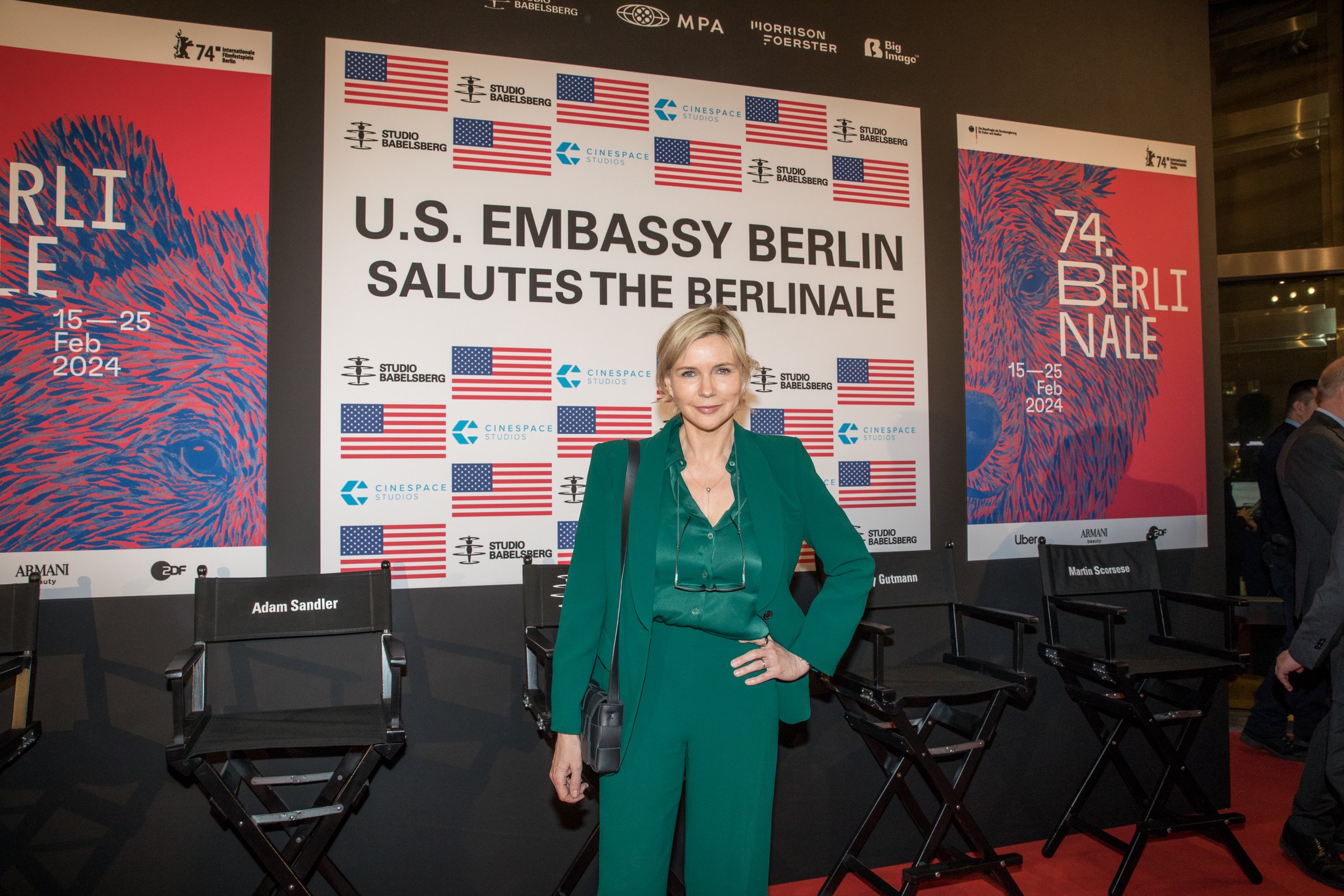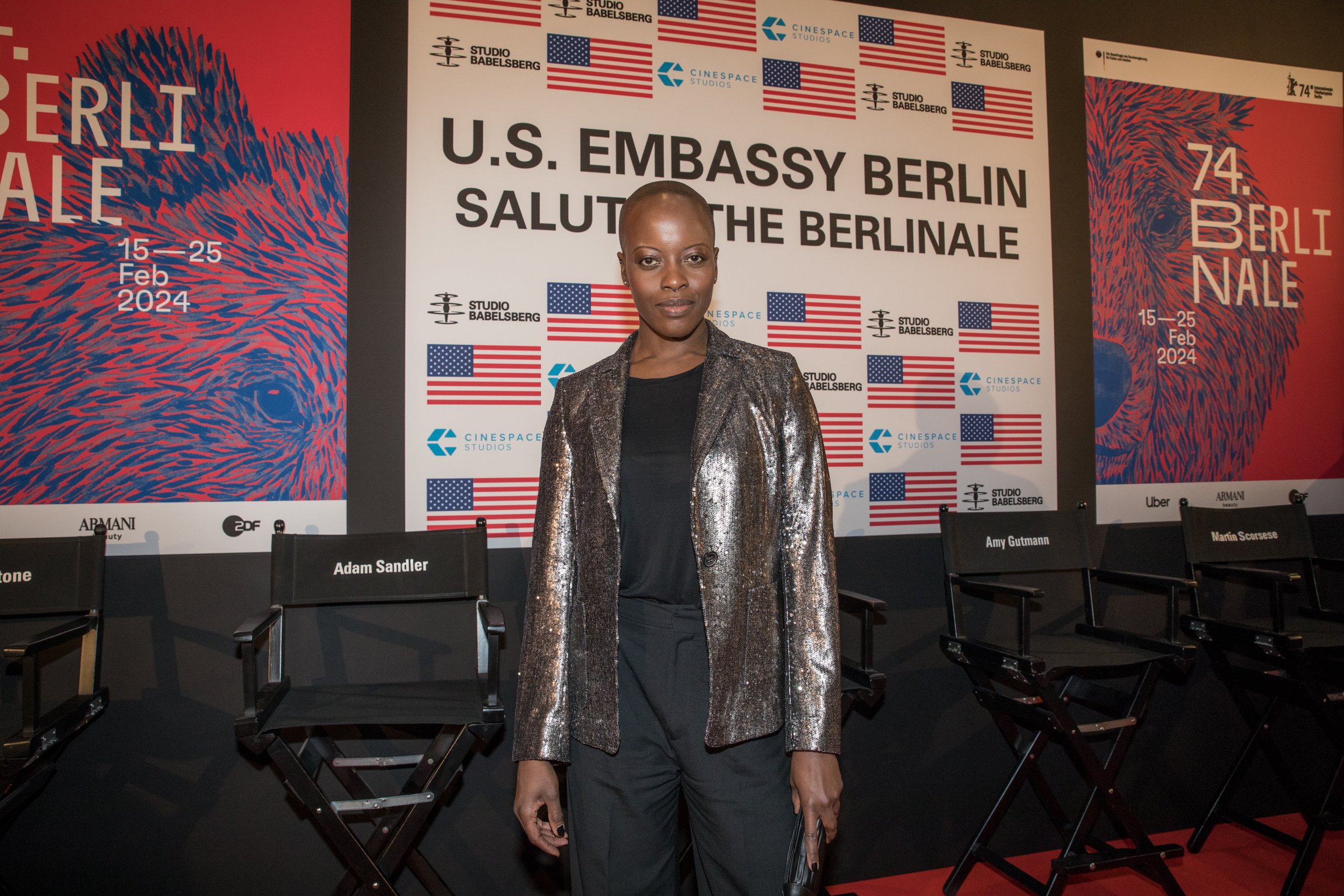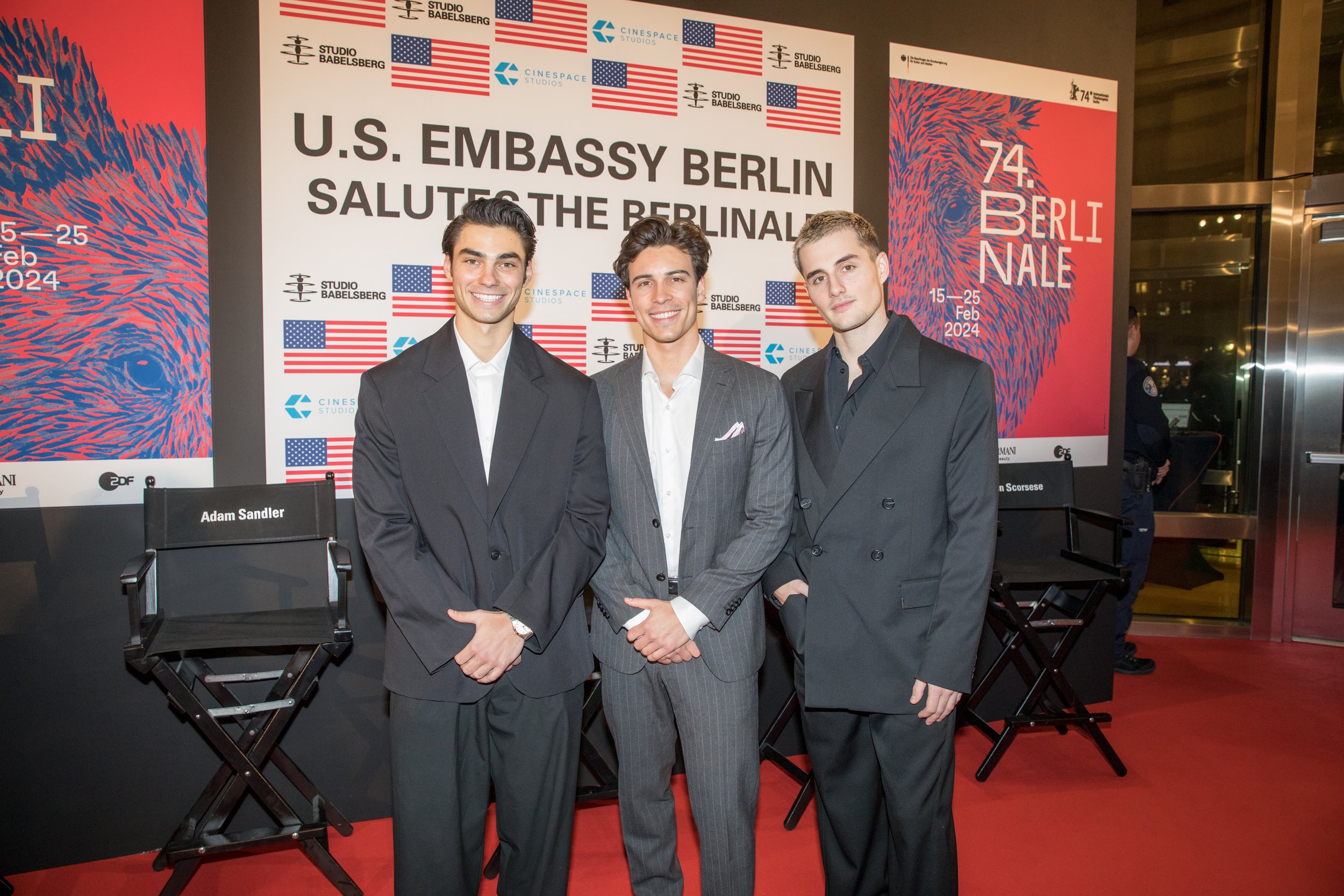U.S. Embassy's Berlinale Reception
Amidst the glittering facades and red-carpet glamour of the 74th Berlin International Film Festival, a more profound message resonated through the U.S. Embassy's annual Berlinale reception on February 20th. As global tensions simmer and authoritarian regimes clamp down on fundamental freedoms, this gathering of filmmakers, artists, and diplomats became a powerful affirmation of the arts as a force for democracy, dialogue, and resistance.
Sharon Stone, an enduring Hollywood icon, graced the U.S. Embassy's Berlinale reception with her presence. Known for her captivating roles and fearless advocacy, Stone's attendance underscores the intersection of cinema and human rights. Her presence highlights how the power of film extends beyond the screen, serving as a tool for social change and a platform for amplifying voices fighting for freedom and justice.
The star-studded guest list, featuring luminaries like Sharon Stone and Veronica Ferres, hinted at the event's cultural cachet. But the presence of ambassadors like France's François Delattre and Ukraine's Oleksii Makeiev underscored its true purpose. Their participation reflected the Berlinale's unique role as a platform where nations, often at odds politically, find common ground through the universal language of cinema.
Ambassador Amy Gutmann's speech, delivered via live video stream, was a poignant highlight. It echoed the prevailing sentiment that art is a reflection of life and a tool to shape it. "Films," she asserted, "possess a singular capacity to bridge cultures, to foster empathy and understanding, they are ambassadors for democracy."
Gutmann's words carry particular weight in today's world. The ongoing war in Ukraine serves as a stark reminder of the fragility of human rights, the erosion of democratic values, and the brutal suppression of dissent. Yet, even as bombs fall, Ukrainian filmmakers find ways to tell their stories, to bear witness to the horrors and heroism of their people. Their films become acts of defiance, reminding the world of the indomitable human spirit that persists even amidst history's darkest chapters.
Ukrainian Ambassador Oleksii Makeiev and his wife attend the U.S. Embassy's Berlinale reception, representing their nation's resilience and unwavering artistic spirit amidst ongoing war. Their presence highlights the power of film as a means of cultural expression and a beacon of hope in times of darkness.
Art as Resistance Against Oppression
The resilience of Ukrainian cinema is a testament to the enduring power of the artistic spirit. Filmmakers, even those in the crosshairs of oppressive regimes, refuse to be silenced. Their cameras become weapons of truth, exposing injustice and amplifying the voices of the marginalized.
Under censorship and persecution, international film festivals like the Berlinale become vital sanctuaries for artistic expression. They provide a stage for films that might otherwise be suppressed, fostering a vibrant marketplace of ideas where filmmakers worldwide can connect and forge alliances. Attending a festival like the Berlinale can be a statement of solidarity, demonstrating to oppressed artists that they are not alone.
This is where the intersection of film and human rights becomes so potent. Film festivals are more than showcases for cinematic excellence; they catalyze social change. By exposing audiences to diverse perspectives and experiences, films can ignite empathy, challenge preconceptions, and inspire us to demand a more just and equitable world.
The war between Israel and Hamas is another painful example of a protracted struggle in which cinema can play a vital role. While films cannot single-handedly bring peace, they sow the seeds of understanding and compassion, essential prerequisites for any lasting solution.
Of course, it would be naive to suggest that film alone can change the world. Yet, the arts possess a unique power to penetrate hearts and minds, stir us from complacency, and galvanize us to act. A powerful film can leave an indelible mark, shaping our worldviews and influencing public discourse. It can spark conversations, challenge power structures, and even sway policy decisions.





